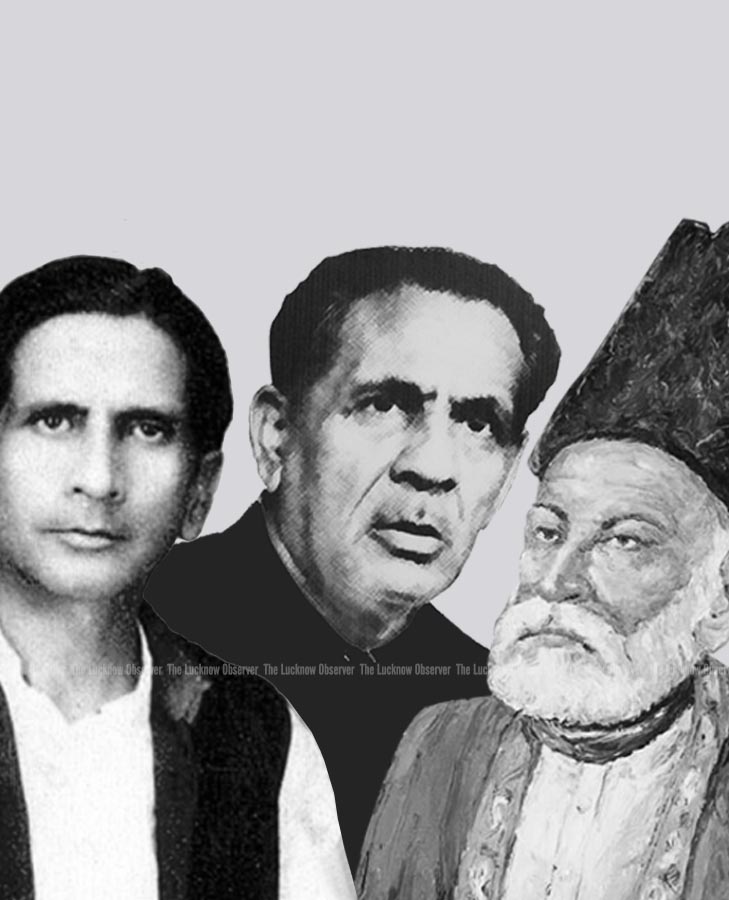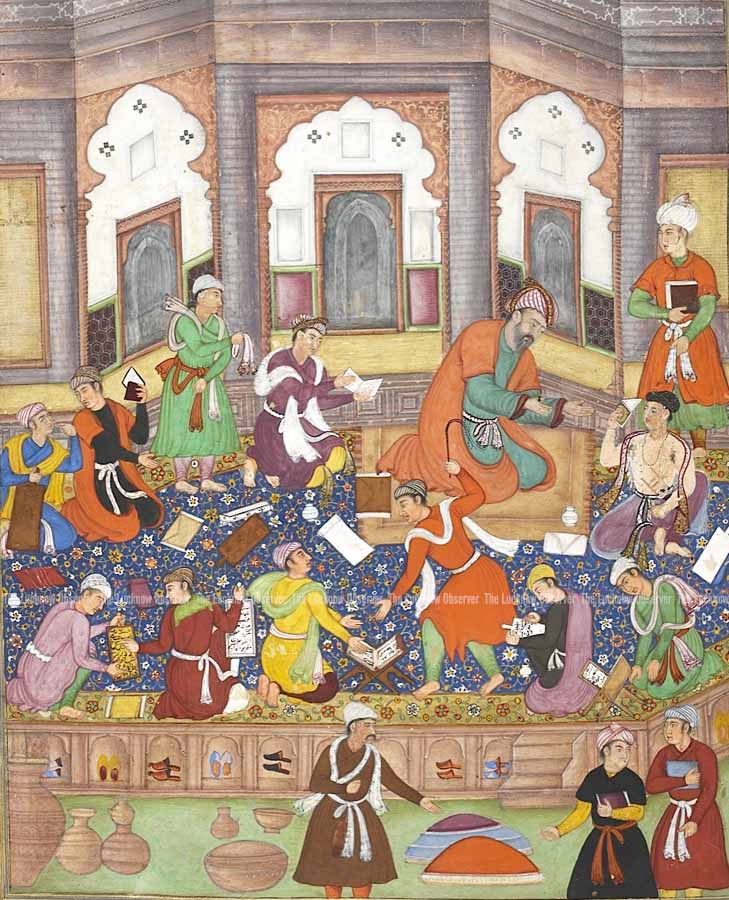The Wit and Humour of Urdu Poets
Mirza Ghalib, the most celebrated Urdu poet was famous for his sharp wit as well. Here are some samples of his wit: Ghalib was exceedingly fond of Mangos. once, during the season, he was devouring mangoes sitting in his garden when a friend who did not like mangoes dropped in. A donkey passed by, smelled the Mango peels and left without eating them.
The friend pointed to Mirza Ghalib : “Look, even a donkey does not eat mangos.” Mirza Ghalib snapped back: “You are right, a donkey does not eat mangoes.“
Mirza Ghalib was also known for his unorthodoxy which he has admitted in this couplet:
Jaanta hoo(n) sawaab-e-ta’at- o-zuhd
Per tabiyat idhar nahi(n) aati.
( I know the rewards of obedience ( to God) and piety, But I am still don’t feel like it.)
Hence the following witty remarks:
Once, during the month of Ramadan (Fasting month), when Muslims are instructed to control all Five Senses and perform only good deeds the whole month, Ghalib was playing cards with some like- minded friends, behind closed doors in his home. A friend who was fasting, knocked at the door and said: “Mirza, I have heard that during Ramadan, God puts Satan in an enclosure so he may not go around inciting people to indulge in the prohibited.” Ghalib responded : “You have heard it right my friend, and this is that enclosure.”
At the end of the fasting month, somebody asked Ghalib: “How many fasts did you observe Mirza?” He honestly answered “I did not observe one“.
Among later poets, Majaz was considered the wittiest. In Lucknow Coffee House, Hazratganj, poets and writers used to get together regularly. A not very popular poet- Salaam Machli Shehri, when inebriated, sometimes compared himself with Majaz, a very popular poet at that time.
Once Salaam entered the Coffee House badly drunk and declared in English: “Friends, Majaz is dead and I am still living and kicking“! Majaz snapped back: Friends, the Urdu translation of what Salaam just said is: “Dosto, Majaz to mar gaya lekin Salaam abhi zinda hai aur do lathiyan ucchaal raha hai.”
A poet whose Takhallus (Poetic pen- name) was “Adum” which means “Non- existentence“, was unusually tall and well- built. When Majaz saw him the first time, he quipped: “Agar yehi Adum hai to phir Wajood kya hoga?” (If this is non-existance, what would be the existence?)
A friend confided in Majaz that he wanted to marry someone who could be his wife as well as his “Girl friend“. Majaz seriously advised him to marry a “Mid – wife“
A bachelor friend told Majaz: “I have reached a certain age and have poor health so I am thinking I must get married now and marry a widow (Bay-Wah)”. Majaz said:”Why must you marry a widow? Marry anyone, she will soon be a widow”
In Urdu poetry, it is permissible and even enjoyed when the poets indulge in self- praise like in the following couplets:
“Poochhtey haen voh ke Ghalib kaun hai?
Koi batlaey ke hum batlaae(n) kya“
“Sher hain ya jauhar-e-nayaab ki lariyan Anees
Jauhari bhee is tarah motee piro Sakta nahi“
Some poets took their own praises to the extreme and their ego-centricity resulted in funny jokes. The Ghazal maestro “Firaaq” was one such poet. He was known for his short- temper as well: in a mushaira, a young poet recited a very beautiful ghazal. He received much applause from the audience and someone shouted: “Wah Wah, bilkul Firaaq, kya Takkar ki ghazal hai” (Bravo, your Ghazal is comparable to Firaaq’s)
“Firaaq” was present at the stage and became furious at this comparison. He took the Mike and roared: “Miyan! Cycle ki Rickshay say takkar suni thi, Rickshay ki Car say takkar bhi suni thi, lekin Rickshay ki Hawai-Jahaaz say takkar nahi suni thi.“
(I have heard of a cycle colliding with a rickshaw. I have also heard of a rickshaw colliding with a car. But, I have never heard of a cycle colliding with an Aero plane.)




